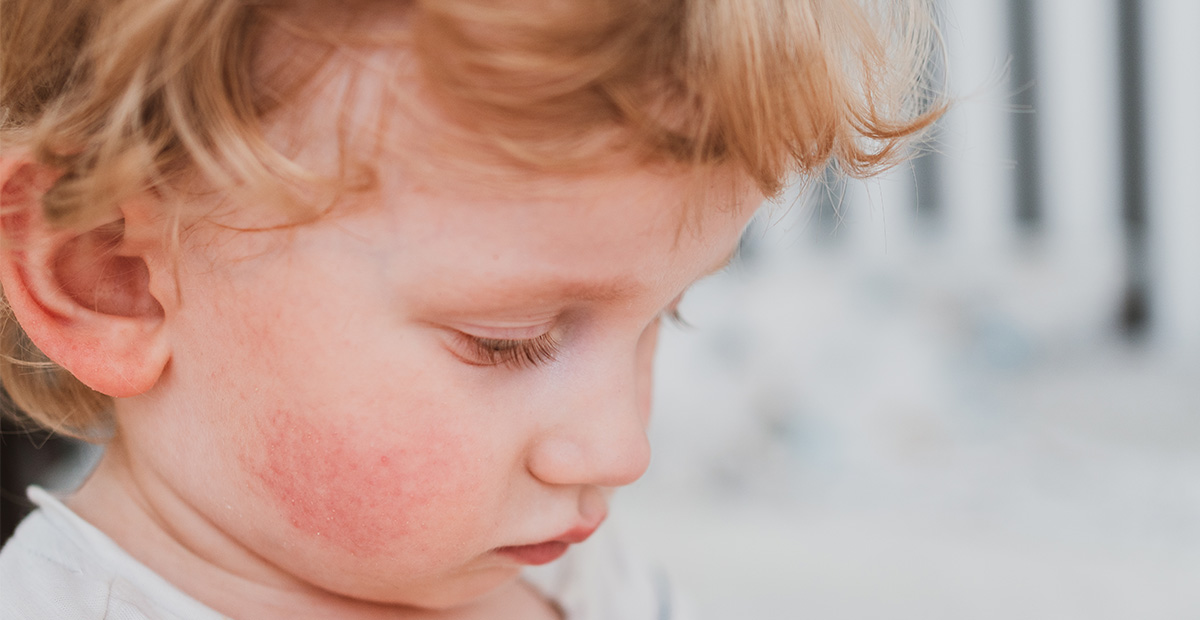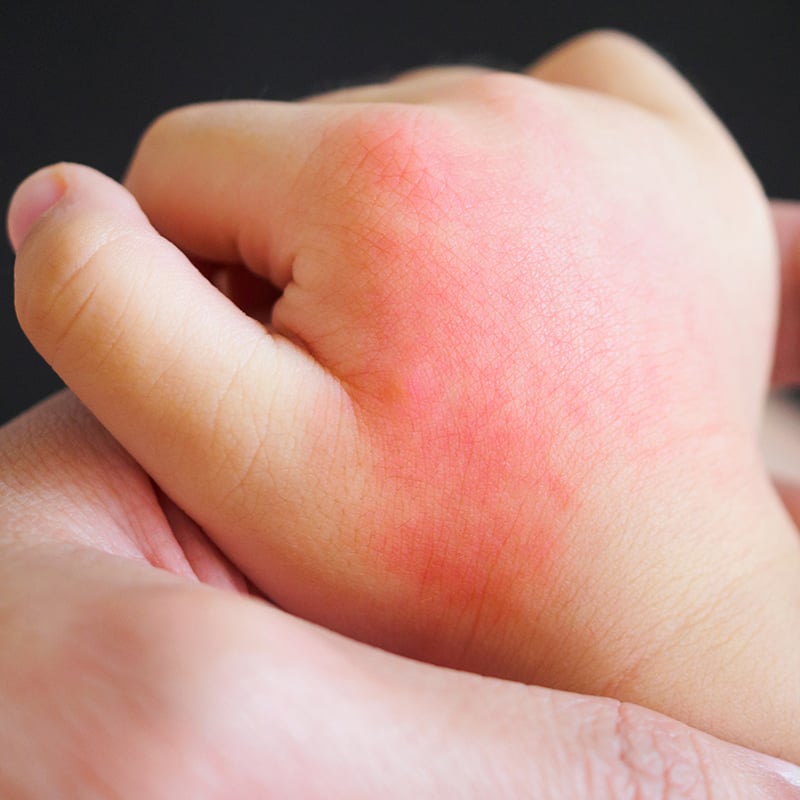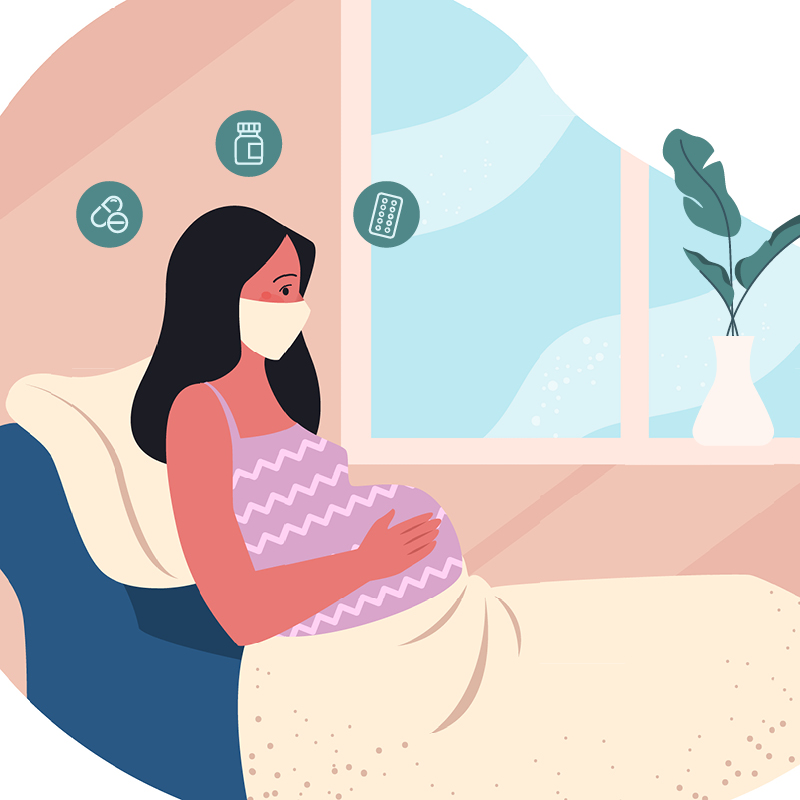When a child gets a rash, there are a number of illnesses that could be linked to it. One of the more common yet less discussed viruses related to a child’s rash is called fifth disease.
For advice on how to recognize the signs and treat the symptoms of fifth disease, we asked pediatrician Beth Orlowski, MD, pediatrician at our Sodus Pediatrics office.
Talk With One Of Our Providers
Symptoms of fifth disease
Fifth disease is caused by Parvovirus B19, a common virus that spreads most easily through respiratory droplets (sneezing, coughing, etc.). Symptoms of fifth disease include:
- mild fever
- cold-like symptoms (coughing, sneezing, runny nose, sore throat, etc.)
- joint pain
The most recognizable symptom of fifth disease is a red, splotchy rash that usually appears first on the face.
“Since a rash can be a sign of several different illnesses, it is important to talk with your child’s provider about what you are seeing,” Dr. Orlowski said. “They will be able to tell the difference between fifth disease and other sicknesses, such as hand, food, and mouth disease.”
Diagnosis
Healthcare providers usually look for the rash as the first sign of fifth disease because there isn't a specific test for it. The good news is that once the rash appears, the person is no longer contagious.
The rash typically lasts 2-4 days and may spread to the chest, arms, legs, hands, and feet. When the rash spreads to the extremities, it can easily be confused with other illnesses – which is why it is especially important for your child’s healthcare provider to diagnose it accurately.
Unfortunately, there is no medication to get rid of the virus that causes fifth disease.
“It can be tough for kids with fifth disease not to be able to have medicine that fights the virus immediately,” Dr. Orlowski said. “The best thing parents can do to help their child in these situations is make them as comfortable as possible.
Treatment
Treatment focuses on reducing the effects of the symptoms, such as itching, fever, swelling, and/or joint pain. Providers might suggest remedies to sooth itching skin such as a warm oatmeal bath, anti-itching cream, or anti-histamine medicine. Acetaminophen can be used to reduce fevers and ibuprofen can be administered to lessen any swelling or join pain.
Most infections caused by the Parvovirus B19 are mild and end up going away on their own in 7-10 days.
The best way to avoid an infection that would cause fifth disease is to practice good hand hygiene by washing your hands with anti-bacterial soap and water, covering your mouth and nose when you cough or sneeze, and staying home when you are sick.









